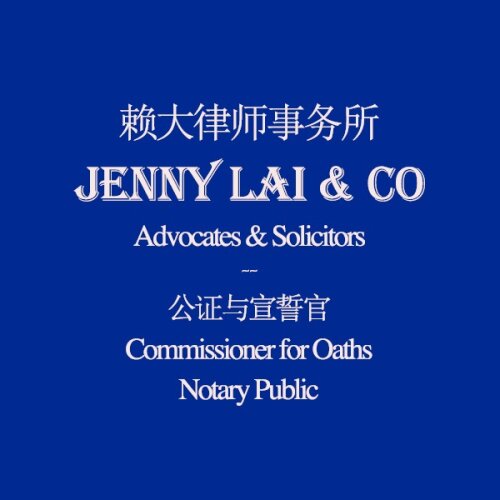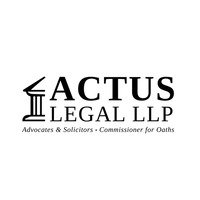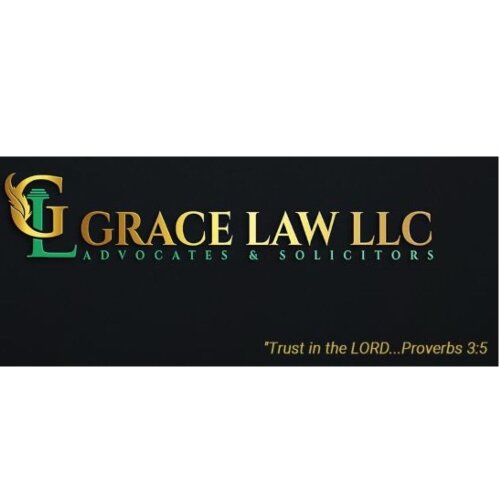Best Lawyers in Chinatown
Share your needs with us, get contacted by law firms.
Free. Takes 2 min.
List of the best lawyers in Chinatown, Singapore
Singapore Legal Questions answered by Lawyers
Browse our 7 legal questions in Singapore and read the lawyer answers, or ask your own questions for free.
- Asylum procedure / highlight ongoing issues
- Hello, I would like to request information regarding asylum procedure in the Netherlands and further discuss ongoing issues. Is there someone I can reach out to discuss further? Thank you.
-
Lawyer answer by Ascendance International Consulting (A-I-C)
Certainly—here’s a concise, paragraph‑style summary you can send: The asylum process in the Netherlands is administered by the Immigration and Naturalisation Service (IND). After arriving, you must first register at a reception centre (often in Ter Apel), where your identity...
Read full answer - Purchasing private property in JB. Seeking lawyer to represent my interest
- Lawyer to handle the transfer of title deeds
-
Lawyer answer by Eman Al Ali Advocates & Legal Consultant
Dear client, we at Eman Al Ali Advocates & Legal Consultants can fully represent you in the purchase process and handle the transfer of the title deed to protect your interests from start to finish.
Read full answer - Debt collection
- I am based in Singapore and hold a Singaporean passport. However, I have a debt to claim from someone in the Philippines, Lipa City, Batangas.
-
Lawyer answer by Yuen Law LLC
Thank you for reaching out to our firm. May we know the size of the claim, and how it arose?
Read full answer
Singapore Legal Articles
Browse our 11 legal articles in Singapore written by expert lawyers.
- How to File for Divorce in Singapore: Step-by-Step Guide
- Most family issues in Singapore (marriage, divorce, custody, maintenance, family violence) are governed by the Women's Charter and handled by the Family Justice Courts (FJC); Muslim marriages and divorces generally go through the Syariah Court under the Administration of Muslim Law Act. For divorce, you must show an irretrievable breakdown... Read more →
- Singapore Debt Collectors: Laws and Steps to Stop Harassment
- Harassment by debt collectors is illegal in Singapore. You can apply for an Expedited Protection Order under the Protection from Harassment Act to stop it quickly. Always verify the debt and the collector's authority before paying. Ask for a written breakdown, the creditor's details, and any Notice of Assignment if... Read more →
- Mediation: Parties get to meet early on
- I remember a case I did a few years back. The business dispute at the High Court was extremely litigious. Application after application, allegation after allegation. And this was between business partners who has started the business together and built it from scratch into a multi-million-dollar, international business spanning many... Read more →
About Hiring a Lawyer in Chinatown, Singapore
Hiring a lawyer in Chinatown, Singapore involves several important steps to ensure you find the right legal representation for your needs. Chinatown is home to a diverse and experienced pool of legal professionals skilled in various areas of practice, including commercial law, family law, immigration, and more. To begin your search, consider defining your legal issue clearly, researching potential law firms, checking their reputation and credentials, and conducting initial consultations to gauge their expertise and compatibility. Engaging with a lawyer who understands both your personal and legal needs is crucial for achieving a favorable outcome.
Why You May Need a Lawyer
There are numerous reasons why individuals in Chinatown, Singapore may seek legal assistance. Some common situations include setting up or managing a business, dealing with property transactions, family disputes such as divorce or child custody, immigration issues, or criminal charges. Legal professionals can provide guidance, ensure compliance with local laws, represent your interests in disputes, and help mitigate potential risks. In a bustling area like Chinatown, with its mix of traditional and modern commerce, legal complexities often arise, making legal guidance indispensable.
Local Laws Overview
Understanding local laws is essential when dealing with legal matters in Chinatown, Singapore. Singapore's legal system is known for its strict enforcement of laws across various domains such as corporate law, real estate, and personal matters. For instance, property transactions must comply with the Land Titles Act, and businesses must adhere to the Companies Act. Additionally, immigration laws are overseen by the Immigration and Checkpoints Authority, and family law issues follow the guidelines set by the Women's Charter. Familiarity with these key legal areas can help individuals and businesses operate successfully in the area.
Frequently Asked Questions
How do I find a reputable lawyer in Chinatown, Singapore?
Start by seeking recommendations from friends or colleagues, checking online reviews, and verifying the credentials and specializations of lawyers through legal directories.
What should I bring to my initial consultation with a lawyer?
Bring any relevant documents, identification, a written summary of your legal issue, and a list of questions you want to cover during the meeting.
How do I know if a lawyer is licensed to practice in Singapore?
You can verify a lawyer's license through the website of the Law Society of Singapore, where they list all practicing lawyers.
What are some signs that a lawyer is a good fit for my case?
A good lawyer should have experience relevant to your case, demonstrate clear communication, understand your goals, and offer a transparent fee structure.
How are legal fees typically structured in Singapore?
Legal fees can be structured as hourly rates, fixed fees for specific tasks, or contingency fees, depending on the service and agreement between both parties.
Can lawyers in Chinatown assist with non-English-speaking clients?
Yes, many lawyers in Chinatown are bilingual and equipped to assist clients in Mandarin and other languages, along with English.
What happens if I lose my court case?
If you lose, your lawyer can guide you on potentially filing an appeal or advise on post-judgment options and obligations.
Are initial consultations with lawyers always free?
Not always. Some lawyers offer free initial consultations, while others might charge a nominal fee, which should be clarified during your first contact.
How long does it take to resolve a legal dispute in Singapore?
The duration depends on the complexity of the case, ranging from a few months to several years for more intricate cases.
What is a retainer fee?
A retainer fee is an upfront cost for securing a lawyer's services and is typically deducted from future billing.
Additional Resources
For those seeking further legal guidance, several resources and organizations can be of assistance. The Law Society of Singapore offers various legal resources and support services. The Community Justice Centre provides assistance for individuals who cannot afford legal representation. Additionally, the Ministry of Law is a governmental body overseeing legal policies and initiatives. For further understanding of legal rights and obligations, resources from the Singapore Academy of Law can also be helpful.
Next Steps
If you require legal assistance in Chinatown, Singapore, begin by clearly identifying the nature of your legal issue. Research and shortlist potential law firms or lawyers who specialize in the relevant area of law. Arrange for an initial consultation to discuss your case and evaluate the lawyer's suitability for your needs. Ensure you understand the fee structure before proceeding. Taking these proactive steps will help build a strong legal strategy and increase the likelihood of a favorable outcome.
Lawzana helps you find the best lawyers and law firms in Chinatown through a curated and pre-screened list of qualified legal professionals. Our platform offers rankings and detailed profiles of attorneys and law firms, allowing you to compare based on practice areas, experience, and client feedback.
Each profile includes a description of the firm's areas of practice, client reviews, team members and partners, year of establishment, spoken languages, office locations, contact information, social media presence, and any published articles or resources. Most firms on our platform speak English and are experienced in both local and international legal matters.
Get a quote from top-rated law firms in Chinatown, Singapore — quickly, securely, and without unnecessary hassle.
Disclaimer:
The information provided on this page is for general informational purposes only and does not constitute legal advice. While we strive to ensure the accuracy and relevance of the content, legal information may change over time, and interpretations of the law can vary. You should always consult with a qualified legal professional for advice specific to your situation.
We disclaim all liability for actions taken or not taken based on the content of this page. If you believe any information is incorrect or outdated, please contact us, and we will review and update it where appropriate.
Refine your search by selecting a practice area.































